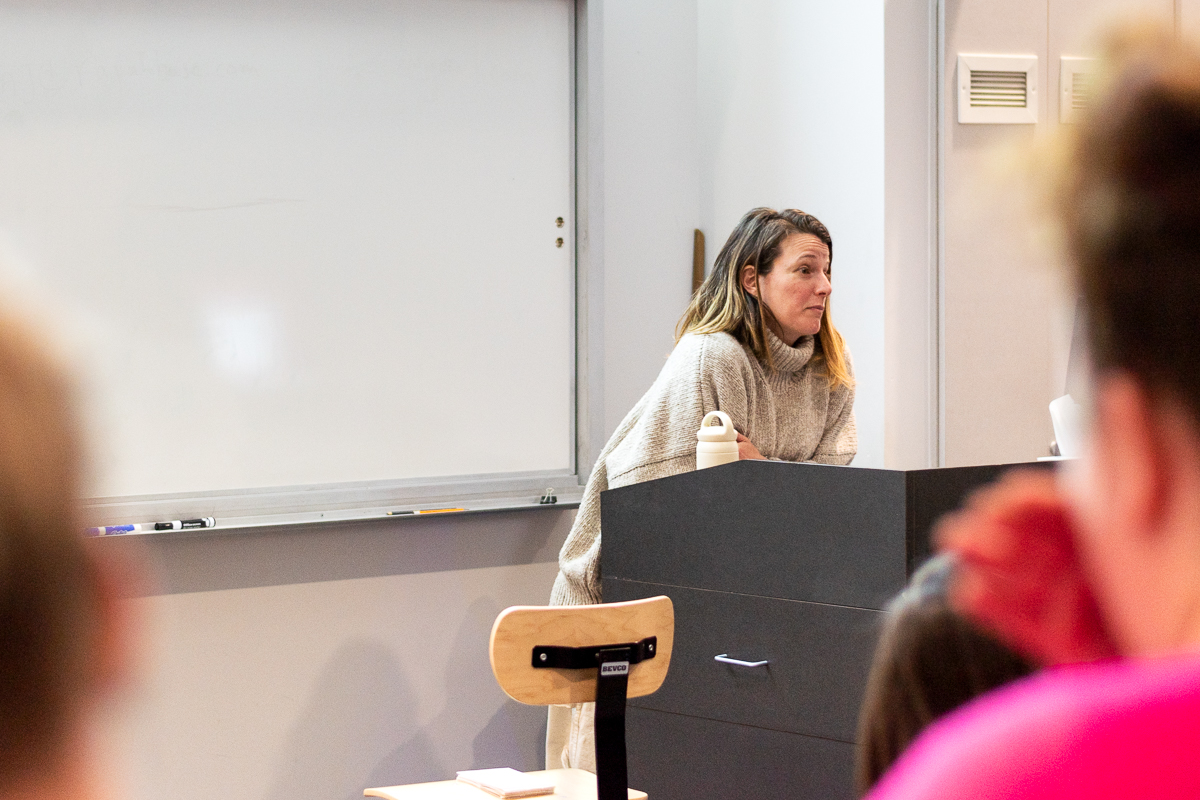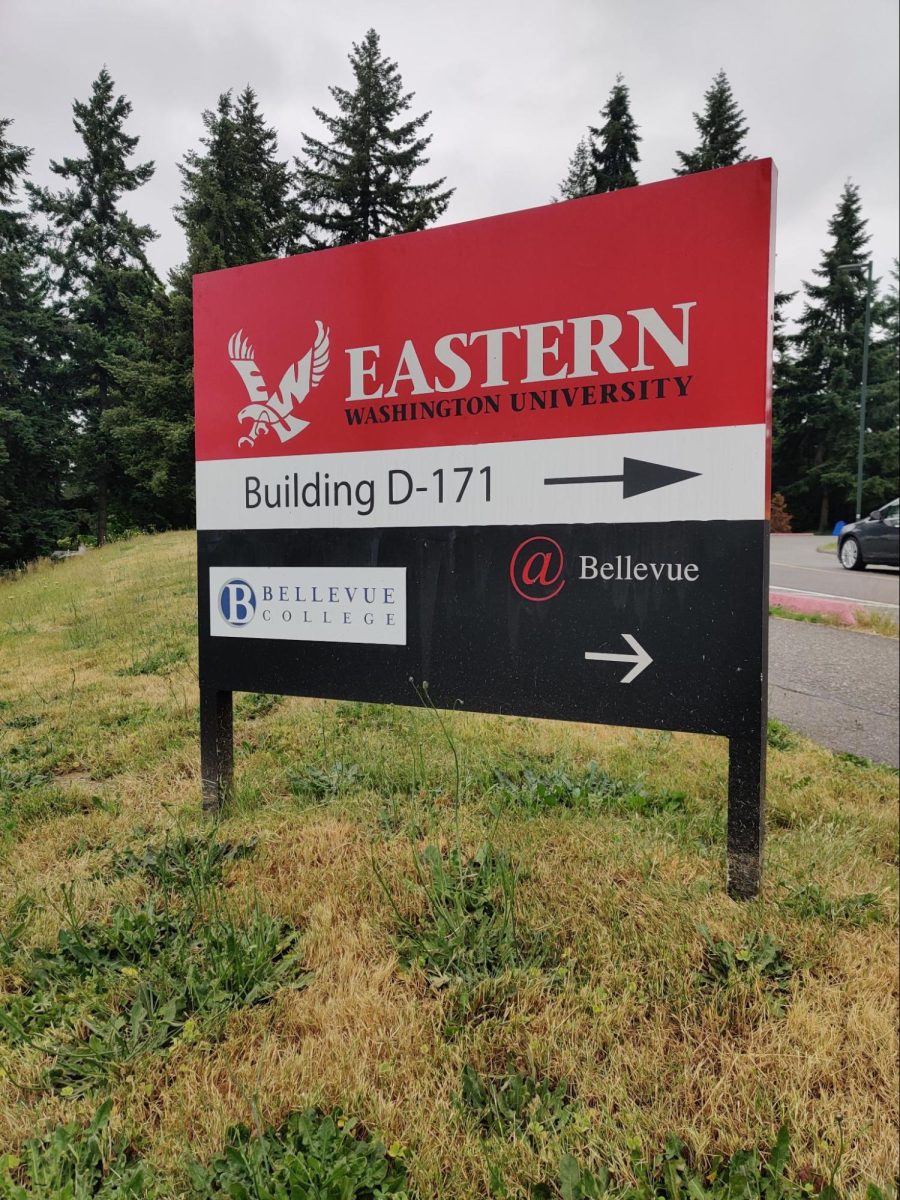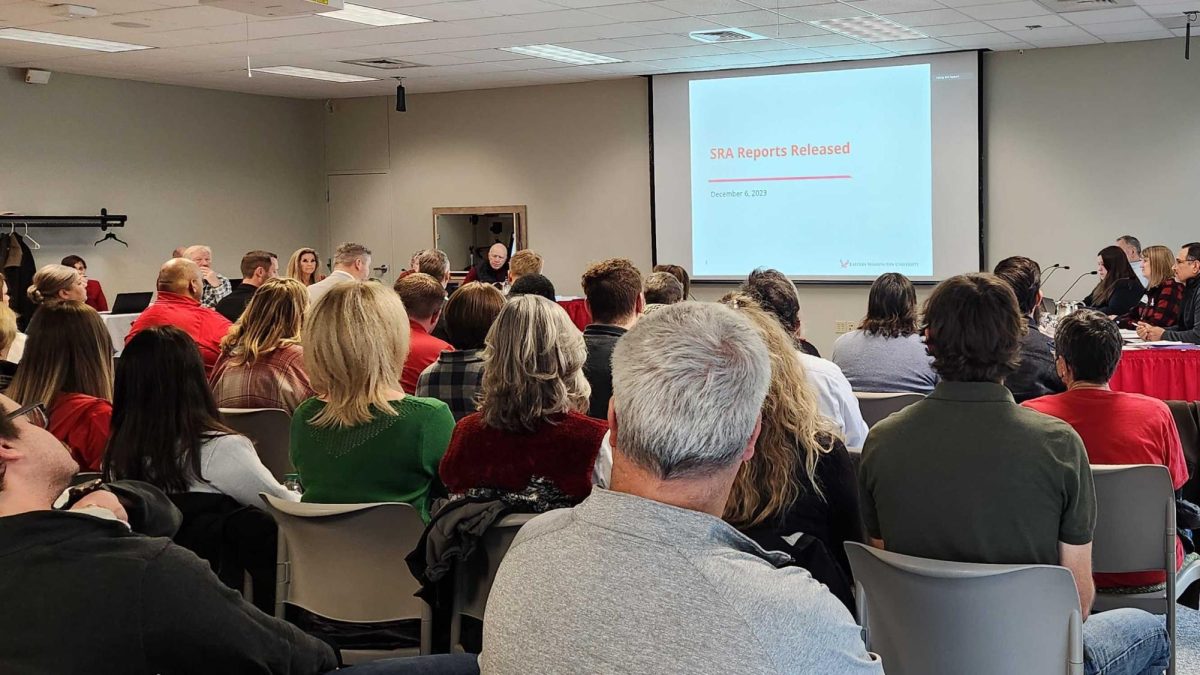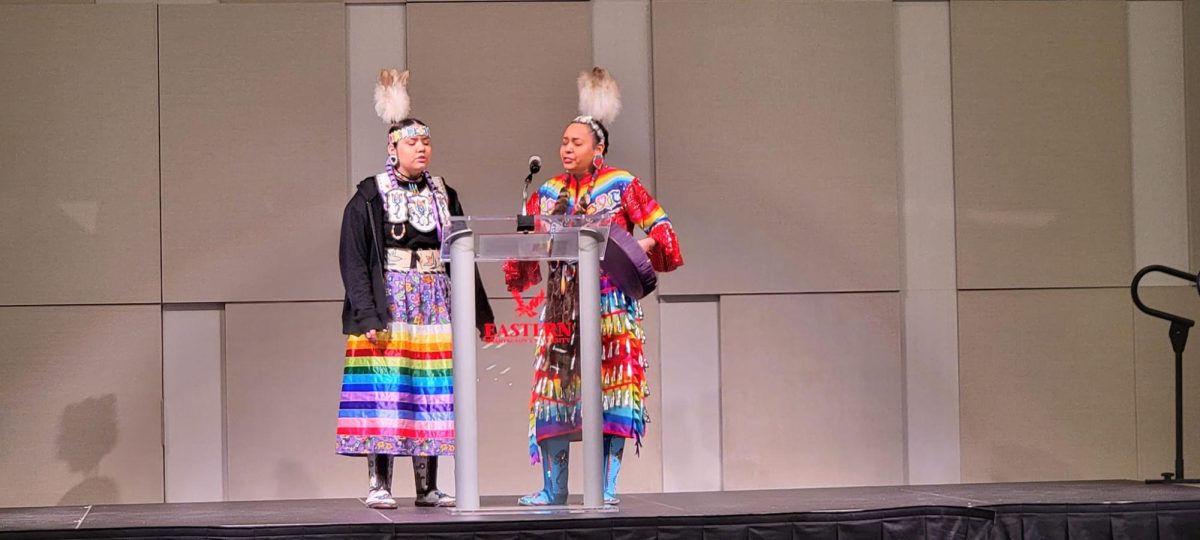Faculty in Eastern’s College of Social and Behavioral Sciences and Social Work who have recently published books are being recognized during the CSBSSW Book Release Series.
“The McNair Scholar Program wanted to create a space to celebrate Eastern faculty’s hard work and dedication to their academic scholarship,” Christina Wiese, McNair graduate assistant and organizer of the event, said in an email. “There are numerous faculty members who have contributed greatly to the Eastern community with their publications and accomplishments.”
Sean Chabot, associate professor of sociology, published his book, “Transnational Roots of the Civil Rights Movement,” a year ago.
His book focuses on the American civil rights and the Indian independence movements.
“I was particularly interested in how movements across long distances and also across many years, can actually learn from each other,” Chabot said. “That was my real interest— taking two really well-studied movements and seeing how they were connected.”
Chabot began thinking about this issue in 1997 as a graduate student in Amsterdam. He finished his dissertation in about five years and then began teaching at Eastern. He was granted a sabbatical in 2010 to finally begin writing the book.
“Since I knew the subject so well, [the writing] wasn’t so much of a problem,” Chabot said. “The part that I struggled with the most, but [was] also probably the most satisfying, [was] just finding a way to tell the story that obviously feels right when you’re writing it, but also, hopefully, allows the reader to sort of get excited by what you’re writing about.”
Chabot agreed to present at the book release series because he felt that Eastern faculty do not present themselves as public intellectuals often enough.
“There are many different forms of recognition, and all of us need some form of recognition I think,” Chabot said.
“Writing a book is a pretty meaningful one to me, not because it earns any money, not because that many people even have bought the book, but obviously it’s a reflection of what you find important. Any chance to share some of what you’ve written and to sort of contribute to the discourse on these subjects I think is crucial.”
Psychology professor Dr. Russell Kolts published his self-help book, “The Compassionate-Mind Guide to Managing Your Anger,” this past July.
“The idea is to help people work with anger using this therapy model called compassion focused therapy,” Kolts said. “Compassion really is defined by being sensitive to the experience of suffering, being moved by suffering and then being motivated to alleviate that. Compassion focused therapy… draws on evolutionary psychology and the neuroscience of emotion. The approach is, let’s understand our brains and our emotions and how they work and how they got that way and then use that to compassionately work with our emotions, in this case anger.”
Kolts really began thinking about how he deals with his own emotions when his son was born almost seven years ago.
“Ultimately, I ended up looking into lots of ways to work with my own mind and to try and work with my own anger and things like that. That led me to Buddhist meditation of all things. I spent a number of years really intensively practicing and meditating a couple of hours a day,” Kolts said.
Kolts said he found compassion practices to be most beneficial to him, so he wanted to incorporate those into his field of work.
“At some point after watching my life change in ways I was really happy with, and doing a lot better job at being the sort of father I wanted to be, I became aware that I couldn’t continue my work as a psychologist without bringing what I was learning into it,” he said. “It felt fake for me to continue to work as a psychologist without bringing compassion work in because this was one of the most powerful technologies of change I’d ever encountered.”
Kolts said it was important to him to merge those two parts of his life together in a way that had a scientific basis, so he started researching how compassion was being used in psychotherapy and the field of psychology. “I’d done some literature searches, and found that there just wasn’t a whole lot out there on compassion and psychology, and I thought, ‘I want to stimulate this area, I want to get this going because this is really important.’ There seemed to be other people that were interested.”
One of those interested people was Dr. Paul Gilbert at the University of Derby in England, who eventually ended up writing the foreword to Kolts’s book.
“In our book, what we try to do is help people to replace their anger with compassion,” Kolts said. “We do that by helping them work with what they pay attention to, how they think and reason, the sort of imagery they play out in their heads [and] working with their body in terms of bodily arousal that fuels the anger. We’re giving people lots of tools to work with their minds, some of which are drawn from modern psychology and some of which are drawn from Buddhist psychology traditions that are literally thousands of years old.”
Kolts had a year and a half to write the book, but said he “spent the first year of that not writing a book.”
“I didn’t want to just write a book about this approach if I hadn’t shown that it worked. So rather than get started on the book initially, I developed a 12 session group therapy, compassion focused therapy treatment program, applying it to anger management.”
He worked with prison groups in Airway Heights, Wash., and gathered data and examples to include in his book, which he spent six months actually writing.
“I got into a regular routine. What I found actually is that while the process of writing a book seems very daunting… all I need to do is sit down,” he said. “And if I just sit down to write over and over again, after enough time passes I have a book.”
Kolts enjoyed writing so much he pitched another book idea to his publisher a year ago, and he just finished co-writing it with Buddhist nun Thubten Chodron a few weeks ago.
Another faculty member presenting in the book release series is Dr. Martin Meraz -Garcia, assistant professor of Chicano education, who published his book “Ordinary Individuals Who Become Narcotraffickers” in January 2012.
“Basically the book is about drug trafficking [and] people who were convicted of trafficking drugs in the United States,” Meraz-Garcia said. “In addition to that, the interviews I conducted not only with drug traffickers but also with law enforcement, judges [and] probation officers. It was an overall analysis not only from the drug traffickers’ perspective, but also from the perspective of law enforcement. I used theories from international relations, political psychology and criminal justice to analyze the issue of drugs.”
Meraz Garcia grew up in areas of the U.S. and Mexico where drug trafficking was an issue, so for his dissertation as a graduate student he wanted to learn more about it.
“We have a tendency to demonize people who engage in activities like drug trafficking, but I think we don’t often consider what are the factors that lead people to do what they do. That’s my background and where I come from, so I wanted to look into that,” he said.
Meraz-Garcia conducted most interviews from 2005 to 2007. He started teaching at Eastern in 2007 and had been working on the book “little by little” until its publication.
“When it comes to drug trafficking of course the first thing that comes to mind is easy money, but what I found based on these interviews is in addition to that, there’s other elements that these people are interested in,” Meraz Garcia said.
“The book shows that drug trafficking is not this glamorous thing that we all see in movies. There is an element of that, but that’s not the focus.”
Meraz Garcia wanted to present his book at the release series because he felt it was a “positive development for the institution.”
“I think it really highlights the accomplishments of the faculty,” he said. “Hopefully that will allow for more support in the research area. The research that we do, essentially, is brought into the classroom, and I think our students are enriched by that.”
Wiese said the goal of the book release series is to celebrate faculty accomplishments, among many other things.
“It is our goal that this event, and future installments of the book release series, will interest students in conducting quality research, reinforce EWU’s reputation by raising the visibility of EWU’s high-quality academic works and foster creativity and innovation for the EWU community by supporting research,” she said.



















